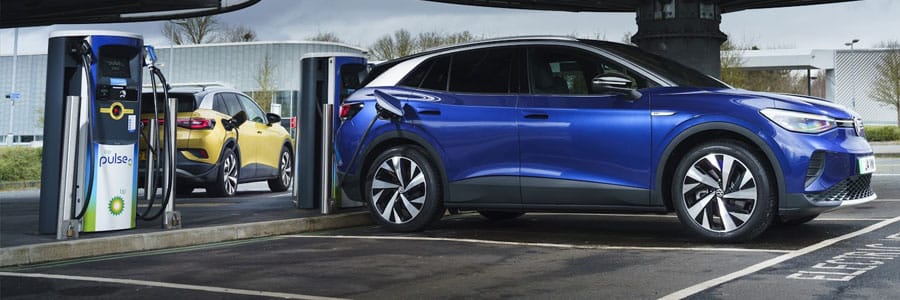Tax benefits help drive plug-in sales

Electric vehicle registrations are growing at pace. Last year, one in nine vehicles was a pure electric car according to the latest statistics from the Society of Motor Manufacturers and Traders (SMMT).
In fact, more electric cars hit the road in 2021 than in the whole of 2016-2020 combined!
Although public interest in electric vehicles has rapidly increased in recent years, the business sector remains a key driver of plug-in car sales.
Offering the lowest levels of benefit-in-kind (BIK) rates for company car drivers - just 1% this current financial year and 2% next - pure-electric models can offer drivers savings worth thousands of pounds each year. Even plug-in hybrids achieve low BIK rates and can easily cut costs for company car drivers in half.
Add in the zero-rated car tax (VED) paid on pure-electric models, and the tax and National Insurance savings for businesses, and it's clear why electric cars have proven popular with the business sector in particular, from both the perspective of the driver and the employer.
Rob Marshall, Gateway2Lease Operations Director, said: “Numbers of electric cars and vans are growing quickly, and it's easy to see why. Driving ranges for even small electric cars comfortably cover what most drivers need in a week, and in 2021 a variety of new EVs have arrived in the UK offering more than 300 miles on a charge.
“Plug-in hybrids have played a crucial part in electrifying the UK's fleet, offering a safety net for those that regularly cover long distances, and often proving a stepping stone for drivers to a full-electric model.
“With
record-breaking numbers of electric cars sold in 2021
, it's clear last year was a real tipping point for electric cars.”
What are the savings on an electric car?
If we look at a typical executive diesel car, such as the BMW 320d, and line it up against the Tesla Model 3, the two most obvious discrepancies are the P11D value and the monthly cost to lease.
| Car | P11D cost | Monthly rental |
|---|---|---|
| BMW 320d M Sport Pro Edition | £45,079 | £586 + VAT |
| Telsa Model 3 Long Range AWD | £48,435 | £696 + VAT |
Source: Gensen by
BCF Wessex
At this stage, the traditional diesel car looks way ahead on value. But if we look at the overall costs during the life of the vehicles over the period of the lease - including cost of maintenance, fuel or electricity, plus the tax savings - then a very different picture emerges.
| Car | True cost | Driver BIK |
|---|---|---|
| BMW 320d M Sport Pro Edition | £836 + VAT | £446 per month |
| Telsa Model 3 Long Range AWD | £749 + VAT | £27 per month |
Source: Gensen by
BCF Wessex
Once the full costs are considered, the BMW suddenly becomes the more expensive option, despite the lower P11D and lower monthly leasing cost. As for the driver, the over £400 per month savings in BIK taxation by choosing the electric Tesla are far too hard to ignore.
“It's only when you start considering the real costs over the lifetime of the vehicle that you start to fully understand the total picture over costs,” continues Rob Marshall. “Once you do that then the economic reasons really stack up to change to electric, and that's before you start to consider the environmental benefits, not to mention CSR considerations.
“Our sales executives can help walk you through these processes and assist your business to start electrifying the vehicles on your fleet.”
For further help and assistance, contact
Gateway2Lease
on
01299 407 360
.
View our latest blog posts

Categories
Pages
We are a family run business based in rural Worcestershire. Our team of 38 staff are on hand to provide an exceptional service to personal and business customers.
Read More
